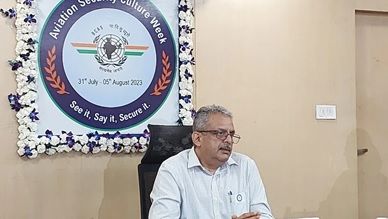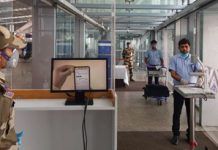The improper carriage of items like cigarette lighters, scissors, power banks, perfume sprays and laptops costs security agencies 1,250 hours daily of extra time at airports to ensure aviation safety, Zulfiqar Hasan, director general aviation of the Bureau of Civil Aviation Security (BCAS), has said. And the percentage of such items discovered daily varies in the hand and checked-in baggage.
“You will be surprised to note that in the hand baggage carried by passengers, lighters form 26 per cent, scissors 22 per cent, knives 16 per cent, and liquids and aerosols 14 per cent. That’s a total of 80 per cent of very innocuous items!” Hasan said.
Per official estimates, about 800,000 hand baggage comprising 500,000 items checked in by 480,000 passengers flying 3,300 flights are screened daily at different Indian airports.
“Similarly, in the checked-in baggage, 44 per cent of the discovered items are power banks, 19 per cent lighters, 17 per cent loose batteries and 11 per cent are laptops,” informed Hasan.
While cigarette lighters are banned in both hand and checked-in baggage, concessions allow passengers to carry other items in the designated baggage. However, not many seem to be following the procedures to inconvenience both the airport security as well as themselves.
Consequently, passengers are required to report 90 minutes prior to the departure of domestic flights and three hours prior to the departure of international flights, which might get significantly reduced if they were following all the laid down protocols.
Now the impact… Each of these diversions is about three minutes. And if you multiply that by 25,000 minutes, it works out to about 75,000 minutes, which is about 1,250 hours. That’s about 12 hours per airport,” stated Hasan. If these items were avoided, the security agencies would instead be in a position to examine more serious threats, said Hasan.
Referring to the growth in the world’s fastest-growing aviation market, he said that it was only going to increase going forward with the country registering the highest number of first-time fliers. Therefore, passengers had the biggest stake in building a culture of aviation security. “It will only take one incident to set us back by years. So, we can’t afford to make mistakes in aviation security nor can we allow anyone else to make mistakes,” said Hasan.








